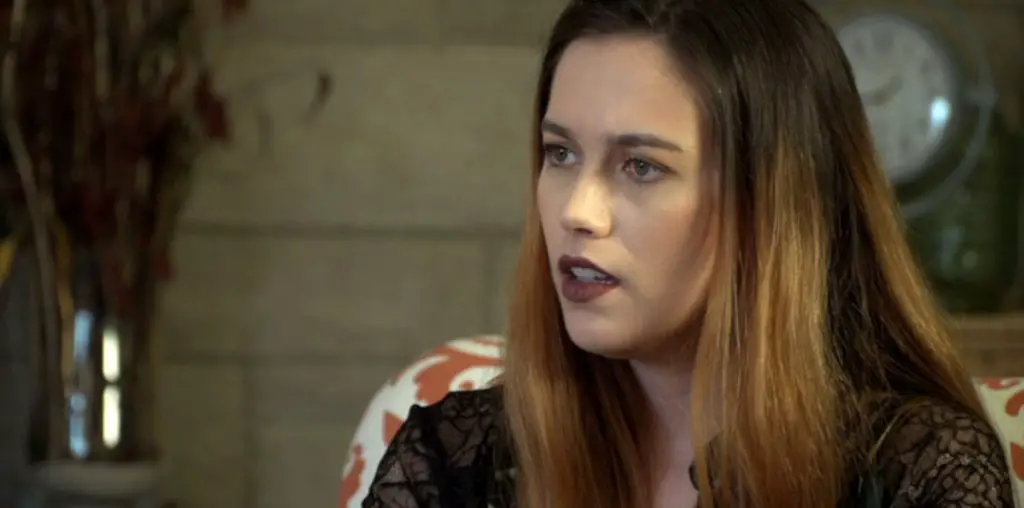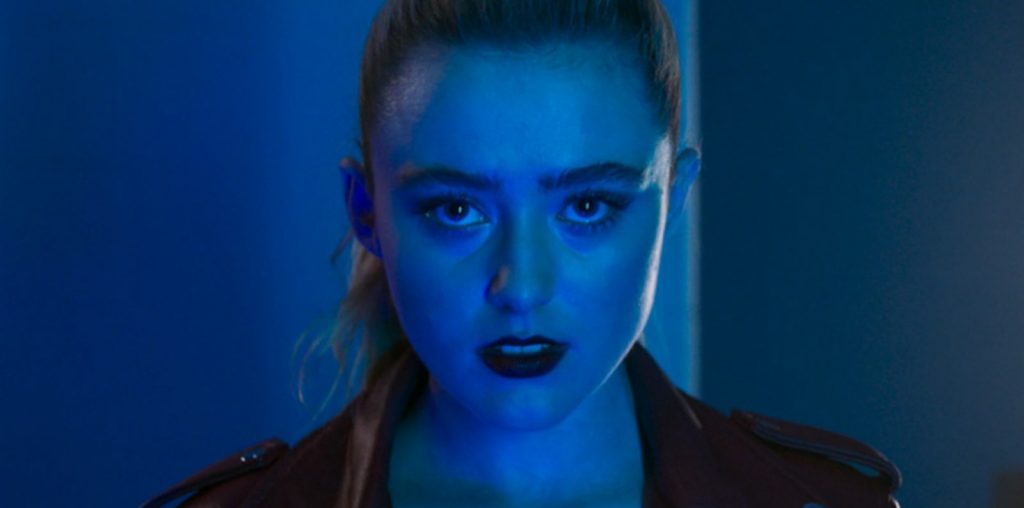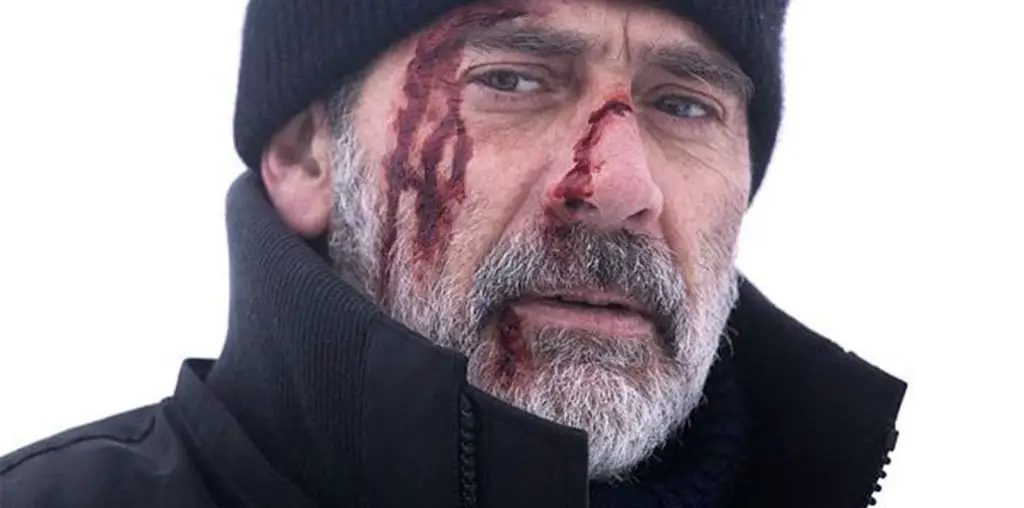
NEW TO VOD! I’m not too fond of films that go down all-too-familiar paths. At the same time, I love it when walking down that same-old-road a film takes an unexpected turn into unfamiliar territory. That’s what I got with Ravin Gandhi’s 100 Days to Live, which takes the serial killer genre into the very sensitive subject of suicide. Intrigued?
There’s a serial killer on the loose. The film opens with his next victim Tanya (Sarah Brooks), a young woman doing yoga at the park. The woman says hello to a young boy—her neighbor. When the boy turns his back, Tanya goes missing. Left behind are Tanya’s belongings and a mysterious book with photos of her and the title “Tanya Was Saved” inscribed on the cover.
Cut to a couple, Rebecca (Heidi Johanningmeier) and Gabriel (Colin Egglesfield), having lunch at a swanky restaurant. The two are very much in love, and Gabriel is on the verge of popping the question, “can I move in with you?” Rebecca says yes and then heads off to the restroom. When Rebecca returns, Gabriel is missing. Left behind is a book with photos of the couple with the inscription “Gabriel Was Saved.”
I’ll rush through the rest. A police detective informs Rebecca, Gabriel was the victim of the “Savior,” who has been on quite a rampage of killing. The only clue that connects all the victims is that they all recently attempted suicide. Coincidentally, Rebecca runs a suicide support group and works at a crisis hotline. Her experience is useful in the hunt for the killer. In fact, she met Gabriel at her support group.
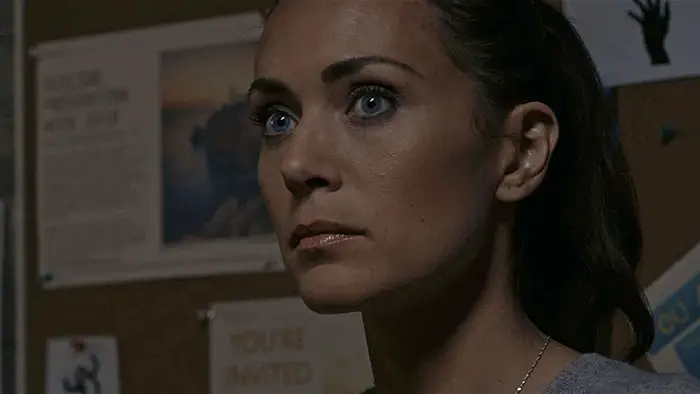
“Left behind are Tanya’s belongings and a mysterious book with photos of her and the title ‘Tanya Was Saved’ inscribed on the cover.”
As in all thrillers, Rebecca becomes obsessed with finding her boyfriend’s killer, and as she examines the photos in the book, she discovers several clues. The most important being that the killer (Gideon Emery) is a former co-worker of hers at the crisis hotline center… who’s supposed to be dead!
Everything you’ve read up to this point is typical fare for a serial killer thriller. Rebecca will eventually come face-to-face with the killer, then be chased by him and confronted with a big secret. It’s this big secret that elevates 100 Ways to Live far higher than other thrillers. I can’t say anything, but this revelation is a literal game-changer story-wise, and it involves shifting sympathies with the antagonist. What you think is typical becomes something brilliant, and any plot holes you’ve seen so far are 95% filled in. It’s excellent storytelling from the writer/director.
The film is quite a fantastic feat for a mid-budget indie. While it boasts no big A- or B-list names, it more than makes up for it with solid actors, who would not typically be cast as leads in higher-profile films. Good performances overall, but missing a little nuance here and there that ultimately make excellent actors great. That said, there’s a lot of emotion and complexity to Rebecca, Gabriel, and the killer that requires flexing those acting muscles. Heidi Johanningmeier, as Rebecca, is fantastic as she carries most of the film.
Speaking of filled-in plot holes, the biggest one answers that nagging question I had, “why would anyone want to make a serial killer film that revolves around the sensitive subject of suicide?” I kept thinking how tasteless it was to go around killing suicide survivors through most of the first half, but there’s a plausible reason, and it’s a good one. Though I don’t think 100 Days to Live is necessarily a PSA on suicide prevention, it’s a damn good thriller. I’m still thinking about the morality of that ending even now.
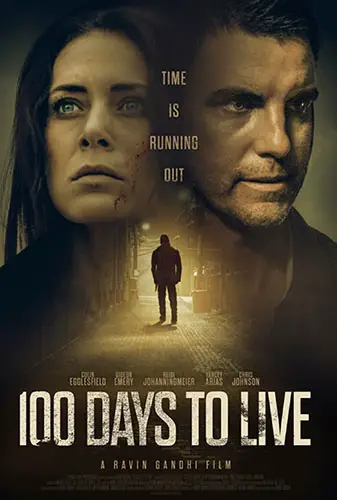
"…this revelation is a literal game-changer story-wise."
